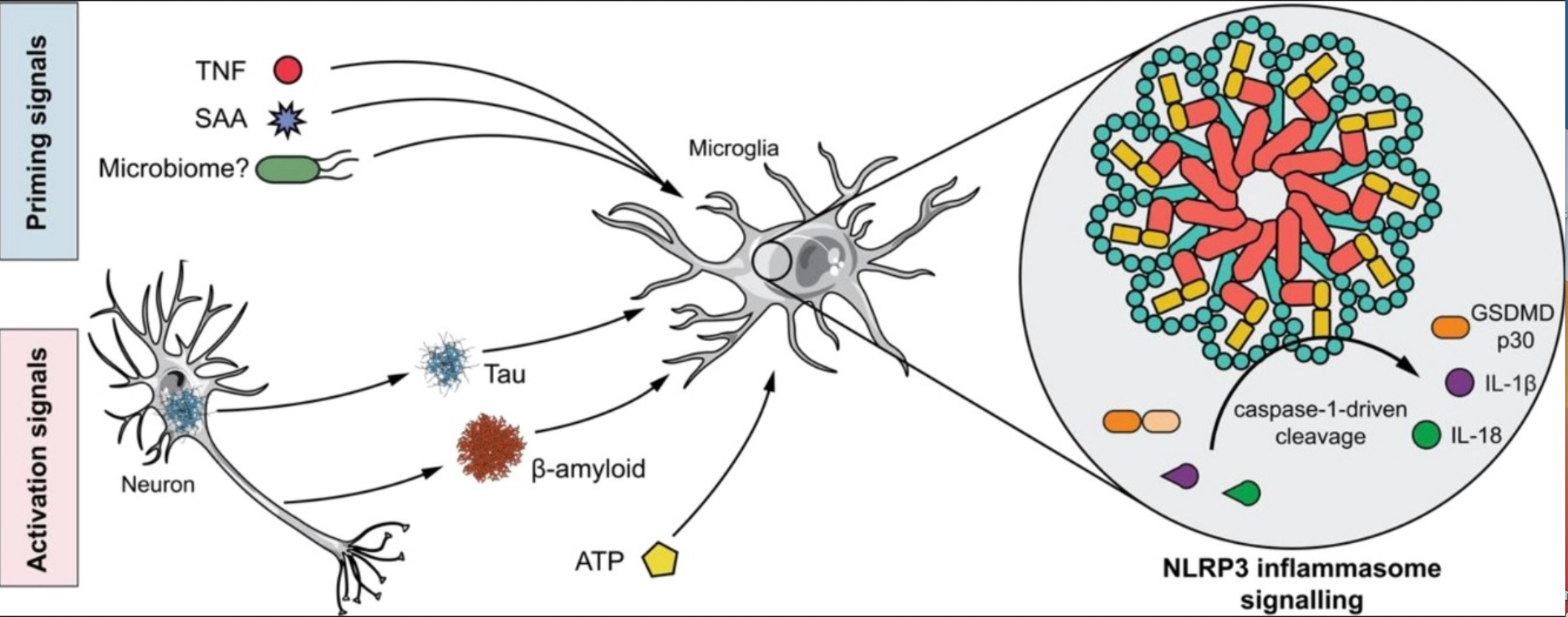The NLRP3 inflammasome triggers sterile neuroinflammation and Alzheimer's disease
Mark Milner et al. from the Inflammasome Lab published a review this month in Current Opinion in Immunology. The review discusses how "the NLRP3 inflammasome is emerging as a critical driver of sterile neuroinflammation and the resultant pathogenesis and progression of AD"
Milner MT, Maddugoda M, Götz J, Burgener SS, Schroder K. (2020).
The NLRP3 inflammasome triggers sterile neuroinflammation and Alzheimer's disease. Current Opinion in Immunology. Nov 9;68:116-124. doi: 10.1016/j.coi.2020.10.011. Online ahead of print. Pubmed
Abstract
To maintain homeostasis, an organism must detect and resolve sterile tissue damage. The NLRP3 inflammasome coordinates such processes to clear tissue damage and induce repair. Dysregulated NLRP3 inflammasome activity, however, drives many conditions including Alzheimer's disease (AD). Recent reports posit that β-amyloid and tau aggregates trigger destructive NLRP3 inflammasome signalling in the brain, leading to AD pathophysiology and cognitive decline. Other endogenous molecules (e.g. TNF, ATP, serum amyloid A), as well as dysbiosis, can induce peripheral or central inflammation and thereby promote microglial NLRP3 inflammasome signalling and resultant AD. The NLRP3 inflammasome is thus emerging as a critical driver of sterile neuroinflammation and the resultant pathogenesis and progression of AD.
Copyright © 2017 - The University of Queensland

